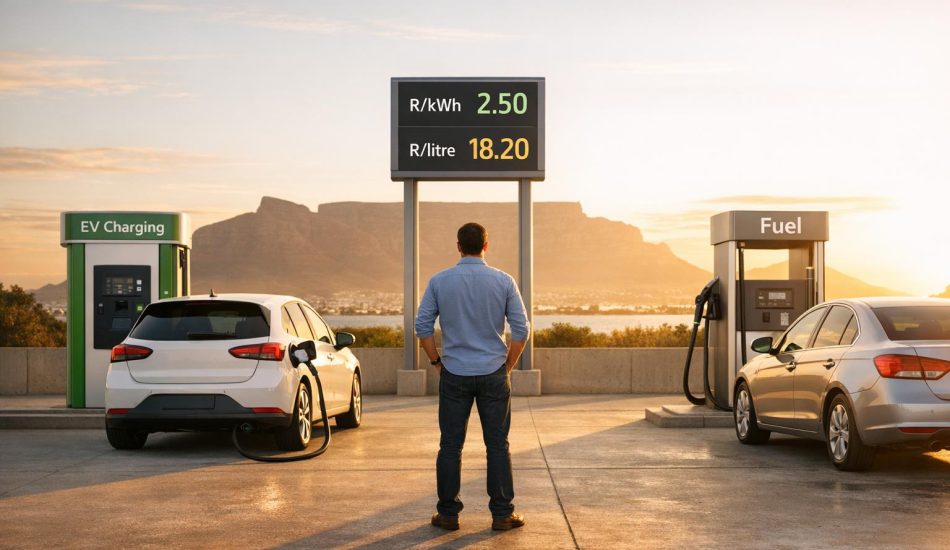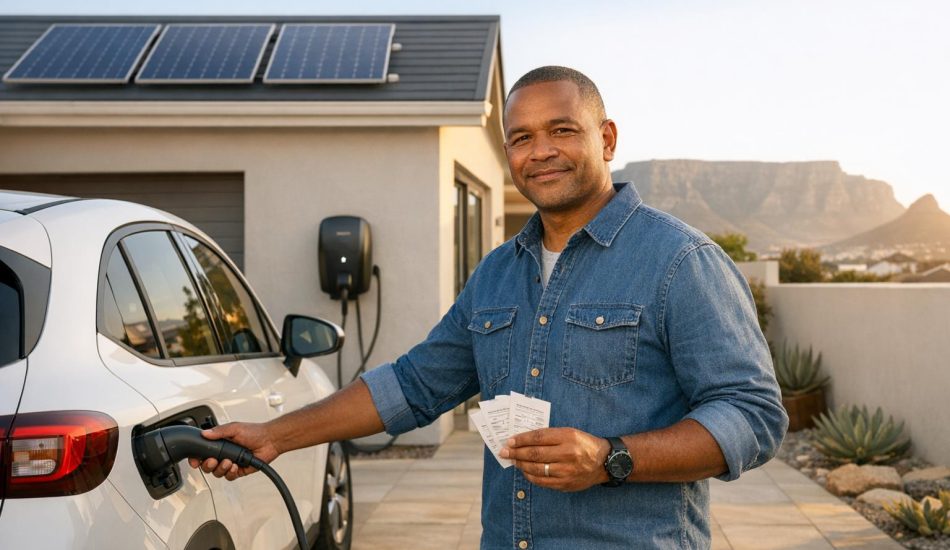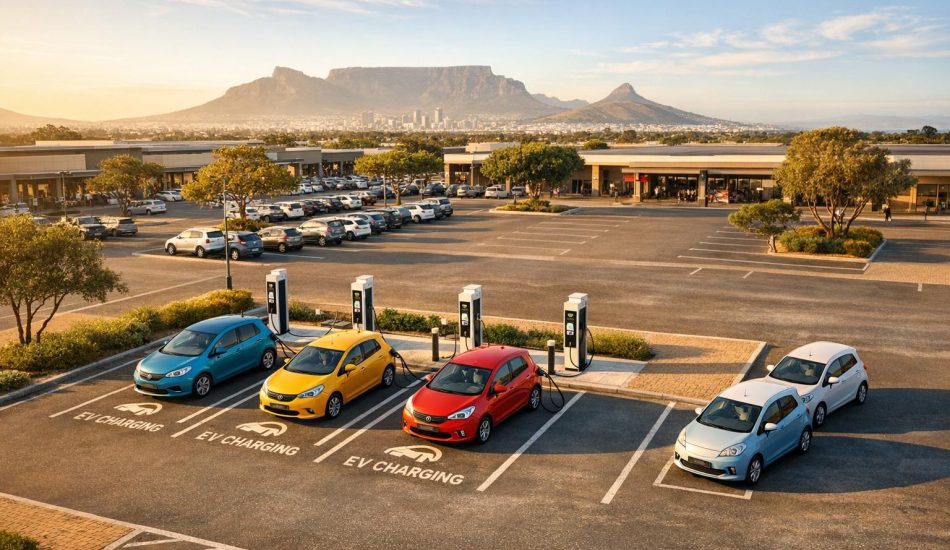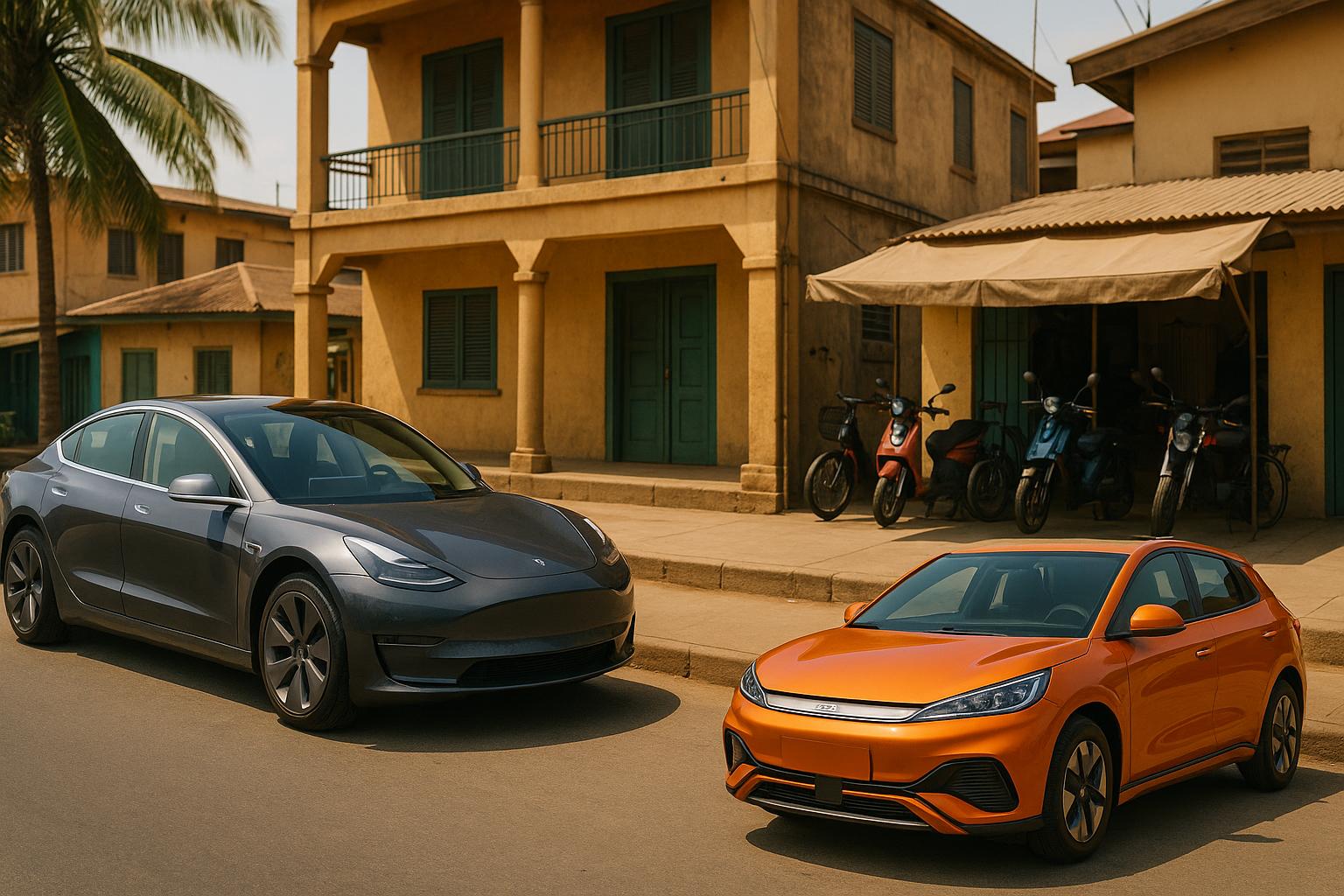
Ghana’s EV market is growing rapidly in 2025, offering options for all budgets. From Tesla’s premium models with advanced features to BYD’s affordable yet reliable vehicles, and budget-friendly EVs from brands like Geely and Dongfeng, there’s a fit for everyone. Charging infrastructure is improving, financing options are expanding, and local service networks are being developed, making EV ownership more accessible.
Key Takeaways:
- Tesla: High-tech, premium EVs like the Model 3 and Model Y; ideal for long-range and tech enthusiasts but expensive.
- BYD: Affordable, practical EVs like the Atto 3 with dependable performance and growing local support.
- Budget EVs: Cost-effective options from brands like Geely and Leapmotor; suitable for urban commutes and first-time buyers.
| Feature | Tesla | BYD | Budget EVs |
|---|---|---|---|
| Price | High | Moderate | Low |
| Range | Long | Moderate | Short |
| Charging | Advanced options | Compatible network | Standard options |
| Local Service | Limited | Growing | Expanding |
| Technology | Advanced features | Modern essentials | Basic functionality |
Bottom Line: Choose Tesla for advanced features, BYD for balanced value, or budget EVs for affordability. Ghana’s EV market is evolving, making electric mobility attainable for more drivers.
SynonergyEV & FDZ Launch electric Car Assembly in Ghana || 15th September 2025
1. Tesla EVs
Tesla has established itself as a leader in the premium electric vehicle (EV) market and is now making its way into Ghana through import channels. With its cutting-edge technology and modern driving features, Tesla offers Ghanaians a chance to experience a new era of automotive innovation.
Among Tesla’s lineup, the Model 3 stands out as an entry-level option, combining performance with practicality. Its sleek design and efficient range make it ideal for both city commutes and longer road trips. On the other hand, the Model Y, a compact SUV, provides extra cargo space and higher seating, making it a versatile choice for families or those dealing with varied road conditions.
Tesla vehicles also come with over-the-air software updates and seamless digital integration, which appeals to tech enthusiasts who appreciate advanced systems. Here’s a closer look at some key aspects of Tesla’s offerings in Ghana.
Price
Tesla vehicles are positioned in the premium segment of Ghana’s market. Pricing depends on the model, configuration, and import duties. For the latest figures, it’s best to reach out to authorized dealers. Additionally, financing options specifically designed for EVs are starting to become available, potentially making Tesla ownership more accessible.
Range
Tesla’s battery technology is built to cater to a variety of driving needs. Both the Model 3 and Model Y offer ranges that can handle daily commutes and longer journeys, though the actual range depends on factors like driving habits, traffic conditions, and climate control usage.
Charging
Tesla vehicles are compatible with both public and home charging solutions in Ghana. They come with adapters for standard Type 2 charging stations, which are becoming more common in urban areas. For quicker overnight charging, dedicated 240V installations are highly effective. Tesla’s mobile charging options add flexibility, allowing drivers to charge at locations like hotels or offices.
Maintenance
Maintaining a Tesla in Ghana requires specialized care from trained technicians. Authorized service centers in major cities provide support with Tesla-certified professionals. Routine maintenance is relatively straightforward, focusing on tasks like tire rotations, brake checks, and software updates. Compared to traditional vehicles, servicing is often less frequent and more simplified. While common parts are becoming easier to source through authorized channels, some specialized components may still need to be ordered from regional centers. Tesla’s mobile service program also offers the convenience of on-site repairs and maintenance.
2. BYD EVs
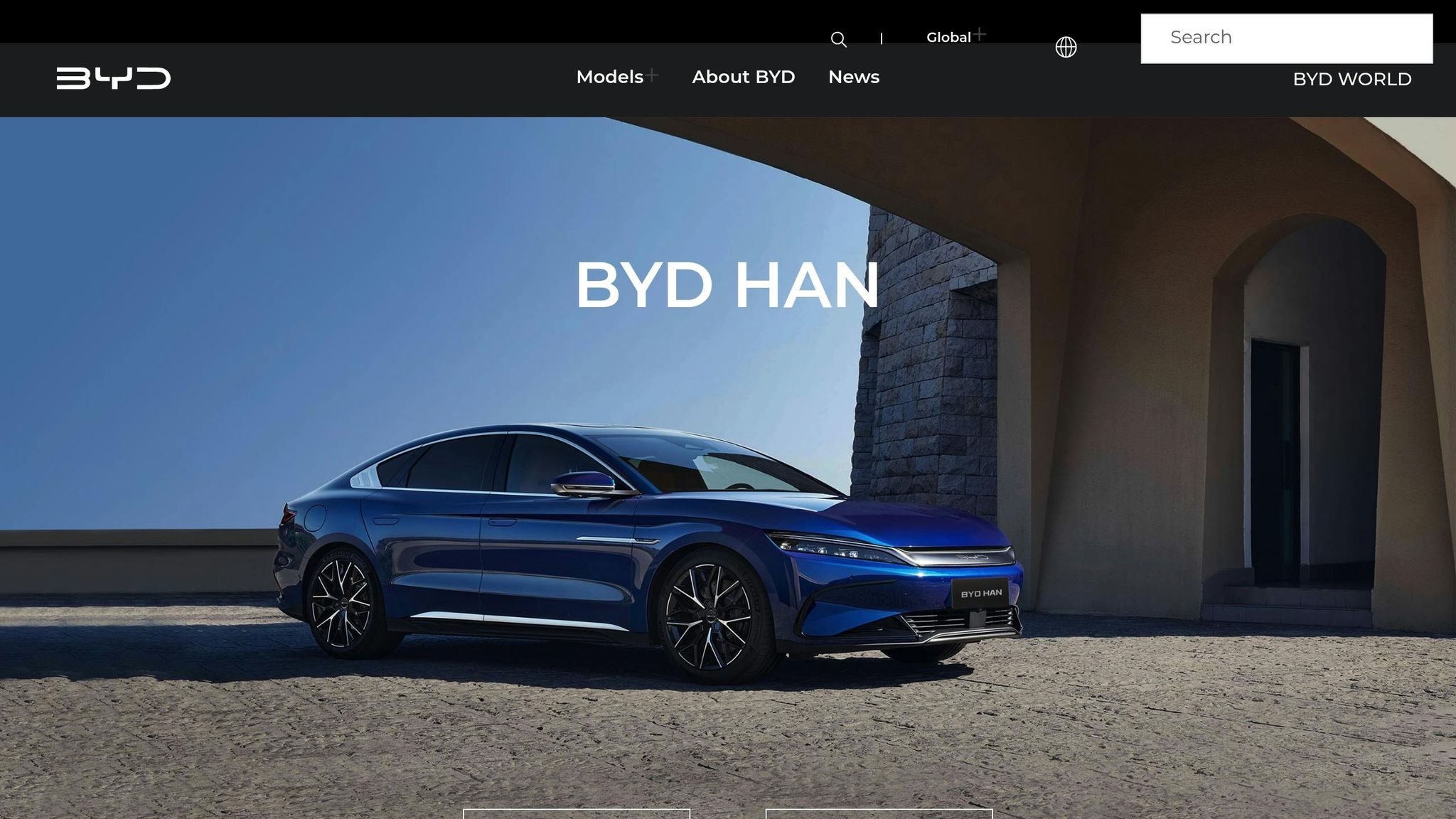
Tesla may dominate the premium EV space, but BYD (Build Your Dreams) is carving out its niche by offering more budget-friendly options for everyday drivers.
In Ghana, BYD brings practical and affordable electric vehicles to the market. Models like the BYD Atto 3, a compact electric SUV, and the BYD Seal, a sleek sedan, showcase a balance of modern design and advanced technology. These vehicles cater to consumers who want stylish, reliable EVs without the hefty price tag.
BYD also prioritizes safety and durability with its Blade Battery technology. Paired with modern infotainment systems and driver assistance features, these EVs are built to perform well under a variety of conditions.
Price
BYD EVs are priced to appeal to a broad audience in Ghana, offering competitive rates. Local dealerships also provide financing options, making it easier for drivers to transition to electric vehicles.
Range
BYD’s electric vehicles are designed to handle both city commutes and longer journeys. Of course, as with any EV, the actual range can vary depending on driving habits and road conditions.
Charging Infrastructure Compatibility
BYD EVs are fully compatible with Ghana’s expanding charging network. Whether you prefer the convenience of home charging or need access to faster public charging stations, BYD vehicles are equipped to meet your needs.
Maintenance and Local Support
To ensure smooth ownership, BYD is building a network of authorized service centers in key areas across Ghana. These centers handle routine maintenance like software updates and inspections, with trained technicians ready to manage repairs. Comprehensive warranty programs further enhance the ownership experience, giving new EV buyers added confidence. BYD’s focus on localized support underscores its commitment to making electric vehicle ownership accessible and hassle-free.
sbb-itb-99e19e3
3. Budget EV Options
Ghana’s electric vehicle (EV) market is expanding beyond premium brands like Tesla and BYD, offering more affordable options that cater to everyday transportation needs. This shift brings new players into the spotlight, showing that electric mobility doesn’t have to break the bank.
Chinese automakers such as Geely, Dongfeng, and ROX are making their mark with competitively priced models. For example, the Geely Geometry C – a compact SUV – blends modern features with affordability. Dongfeng offers a variety of EVs designed for different needs, while Leapmotor appeals to first-time buyers with sleek designs and practical features.
Well-known brands like Hyundai, Toyota, and Suzuki are also stepping into the budget-friendly EV space. This mix of emerging and established manufacturers gives Ghanaian buyers more options, complementing the high-end models already available.
Price
Budget EVs come with entry-level pricing, making them accessible to a broader audience. Many local dealerships also provide flexible financing and leasing plans, making it easier for buyers to switch to electric vehicles.
Range
While these EVs may not match the range of premium models, they are built for everyday use. Their battery capacities are typically sufficient for urban commutes and short trips between cities, meeting the needs of most drivers.
Charging Infrastructure Compatibility
These affordable EVs are designed to work seamlessly with Ghana’s growing charging network. They can be charged at home or at public charging stations, with many models supporting fast charging for quicker battery top-ups.
Maintenance and Local Support
One of the standout features of these budget EVs is the focus on local support. Manufacturers are partnering with established service centers across Ghana to provide accessible and cost-effective maintenance. Buyers benefit from standard warranty packages, with extended warranties often available for additional peace of mind. To ensure quality service, training programs for local technicians are being rolled out, helping to build a skilled workforce to support the country’s shift to electric mobility. These efforts not only make EV ownership more practical but also contribute to the broader adoption of sustainable transportation in Ghana.
Advantages and Disadvantages
Now that we’ve explored Tesla, BYD, and budget EVs in detail, let’s weigh their strengths and weaknesses. Deciding between these options often comes down to balancing costs, features, and practical considerations.
Tesla focuses on the premium market, offering cutting-edge features like Autopilot and top-notch build quality. However, these perks come at a steep price. In Ghana, Tesla owners face additional challenges due to a limited local service network and an underdeveloped Supercharger infrastructure. This often forces users to depend on third-party charging solutions, which can be less convenient.
BYD offers a middle ground between affordability and performance. Models like the E6 and Atto 3 are competitively priced while maintaining solid build quality and efficient battery technology. In some cases, BYD’s charging speeds rival or even surpass Tesla’s. The brand’s growing presence in Ghana also means better local dealer support, though the service network is still expanding.
Budget EVs – from brands like Leapmotor, ROX, and Kantanka – are the most accessible option for those looking to enter the EV market. These vehicles prioritize practical urban use, sacrificing longer range and advanced features for affordability. Their lower purchase price, reduced maintenance costs, and increasing local support make them especially appealing to first-time EV buyers.
| Feature | Tesla | BYD | Budget EVs |
|---|---|---|---|
| Price Range | Premium, high cost | Moderately priced | Most affordable, entry-level |
| Driving Range | Generally longer | Competitive, efficient | Limited range |
| Charging Speed | Relies on Supercharger | Competitive speeds | Standard options |
| Local Service | Limited dealer network | Better local support | Growing service networks |
| Technology Features | Advanced (e.g., Autopilot) | Modern essentials | Basic functionality |
| Maintenance Costs | High | Moderate | Lower |
These comparisons highlight key trade-offs, particularly in service availability and financing – two critical factors shaping Ghana’s EV market. Limited charging infrastructure remains a hurdle across all segments, potentially affecting the overall user experience in different regions.
To build customer confidence, dealers need to expand EV services, including spare parts availability, repair workshops, and charging facilities. Budget EVs have an edge here, as their simpler technology often requires less specialized maintenance.
Financing options also vary. Tesla demands a significant upfront investment, while BYD and budget EVs generally offer more flexible local financing options. For many buyers, this financial accessibility becomes a decisive factor.
Ultimately, the decision hinges on balancing short-term affordability with long-term value, prioritizing desired features over practical needs, and navigating the current infrastructure challenges while anticipating future improvements. Each option contributes uniquely to Ghana’s growing EV market, helping to drive the adoption of sustainable transportation across diverse economic groups.
Conclusion
By 2025, Ghana’s electric vehicle (EV) market is shaping up to cater to a wide range of budgets and preferences. Tesla stands out as the premium option, appealing to those who value cutting-edge features and long-range performance. However, its higher price point makes it a better fit for early adopters and those willing to invest significantly in advanced technology. On the other hand, BYD offers a smart blend of modern features and affordability, making it an appealing choice for middle-class professionals seeking dependable EVs without breaking the bank.
For those on tighter budgets, entry-level EVs provide an affordable gateway into sustainable transportation. These models are particularly well-suited for taxi operators, small business owners, and first-time EV buyers, proving that going electric doesn’t have to mean a hefty price tag.
Ultimately, the right EV for you will depend on your financial situation and what you prioritize in a vehicle. If innovation and extended range are at the top of your list, Tesla might be your go-to. If practicality and value are more important, BYD offers a compelling option. And for budget-conscious buyers, entry-level models ensure that electric mobility is within reach.
Together, these segments are driving Ghana’s shift toward greener transportation. Premium EVs showcase the possibilities of the technology, mid-range options demonstrate practicality for everyday use, and budget-friendly models ensure that the benefits of EVs are accessible to a broader audience. This growing diversity is not only reducing reliance on fossil fuels but also creating opportunities in areas like sales, maintenance, and charging infrastructure.
With Ghana’s charging network expanding and financing options becoming more accessible, the momentum behind EV adoption is only growing. Whether you’re drawn to Tesla’s innovation, BYD’s balanced offerings, or the affordability of entry-level EVs, making the switch to electric means joining a transformative movement that’s reshaping transportation across West Africa.
For those ready to make the leap, EV24.africa provides clear pricing and delivery options across the full spectrum of EVs. The electric future isn’t just a distant dream – it’s here now, ready to meet the needs of every driver.
FAQs
What should I consider when deciding between Tesla, BYD, and affordable EVs in Ghana?
When deciding between Tesla, BYD, and more budget-friendly EV options in Ghana in 2025, there are several important factors to keep in mind:
- Price and Accessibility: For middle-class families, smaller EV models or second-hand imports can be a more affordable entry point. These options help reduce the initial investment significantly.
- Government Incentives: Policies such as lower import tariffs or tax exemptions for EVs, particularly for public transportation, can make certain models more appealing and easier on the wallet.
- Everyday Use: Compact EVs, SUVs, and electric pickups are practical for a variety of needs, from daily commutes to logistics and cargo transportation, offering versatility for different lifestyles.
- Charging and Maintenance: Although urban areas are seeing a rise in charging stations, the overall infrastructure is still in development. Choosing a brand with accessible spare parts and reliable repair services is crucial.
By carefully considering these aspects, you can select an EV that aligns with your budget, daily needs, and Ghana’s evolving EV infrastructure.
What progress is being made in Ghana to expand charging infrastructure for electric vehicles?
Ghana’s electric vehicle (EV) charging network is gradually expanding, though it’s still in its infancy. By 2024, most public charging stations are located in Accra, leaving EV owners largely dependent on home chargers. While convenient for some, this reliance can restrict driving range and overall ease of use.
To tackle these challenges, the government has set a bold target: establish 1,000 charging stations by 2028. Private sector participation is expected to be a driving force behind this initiative, helping to bridge the gaps and encourage wider EV adoption across the country.
What are the financing options for buying electric vehicles in Ghana, and how do they vary between Tesla, BYD, and more affordable EVs?
Financing options for electric vehicles (EVs) in Ghana are growing, making it easier for more people to consider making the switch. By 2025, the government plans to introduce incentives like tax breaks, which are expected to lower costs and encourage the adoption of cleaner transportation options. On top of that, local banks such as FNB Ghana are stepping up with tailored loan packages, including equity release loans, to help buyers afford EVs.
While premium models like Tesla and BYD may come with higher upfront costs due to their advanced features, financing plans can make these purchases more manageable by spreading out payments over time. For those looking for more affordable EV options, flexible financing solutions are available to suit a range of budgets. These efforts are designed to support the diverse needs of EV buyers in Ghana, paving the way for a greener future in transportation.


